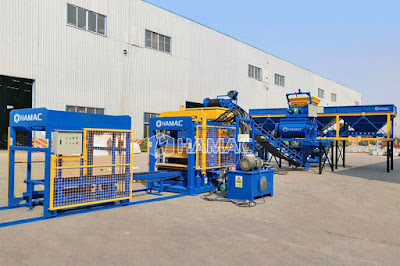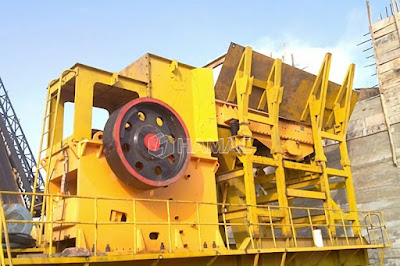Innovation is at the core of the construction industry's evolution. As new technologies emerge, construction professionals constantly seek efficient and effective methods to streamline the building process. One innovation that's revolutionized construction could be the hollow block machine. In this article, we shall delve into the entire world of hollow block machines and explore how they make innovative construction easy.
Understanding Hollow Block Machines
A worthless block machine is really a specialized device utilized in the production of hollow concrete blocks. These blocks, also called hollow masonry units, have hollow cavities that make them lighter, more cost-effective, and thermally efficient compared to solid concrete blocks. Hollow block making machines automate the manufacturing process, allowing for the mass production of those versatile building components.
The Functionality of Hollow Block Machines
Hollow block machines operate using a variety of mechanical and hydraulic systems. The method begins with the preparation of a concrete mixture consisting of cement, sand, and aggregate. This mixture is then poured in to the machine's hopper. The machine's hydraulically driven mold system creates the desired block shape, ensuring uniformity and precision.
As the concrete mixture fills the mold, the machine applies pressure to compress and consolidate it. This compression enhances the strength and durability of the resulting blocks. Once the blocks are formed, they're taken off the mold and transferred to a curing area, where they gain strength and stability over time.
How Hollow Block Machines Enable Innovative Construction
Speed and Efficiency. Hollow block machines significantly expedite the construction process. By automating block production, these machines can manufacture a big amount of hollow blocks in a short period. This speed improves overall project efficiency, allowing construction teams to generally meet tight deadlines and complete projects on time.
Versatility. Hollow blocks made by these machines offer versatility in construction. Their unique design enables various applications, including load-bearing walls, partition walls, retaining walls, and more. The accessibility to different block sizes and shapes enables architects and designers to explore innovative building designs and configurations.
Lightweight Construction. Hollow blocks are lighter in weight compared to solid blocks. This characteristic simplifies transportation, handling, and installation on the construction site. The reduced weight also contributes to a more sustainable construction process, as it requires fewer resources and energy for transportation and construction activities.
Thermal Insulation. The hollow cavities within the blocks create air pockets that enhance thermal insulation properties. Buildings constructed with hollow blocks offer improved energy efficiency, maintaining comfortable indoor temperatures and reducing the reliance on artificial heating and cooling systems. This benefit not only saves energy but in addition reduces utility costs for building owners.
Sound Insulation. Hollow blocks also exhibit excellent sound insulation properties. The air gaps within the blocks become natural sound barriers, reducing the transmission of noise between rooms and from outside sources. This makes hollow block construction particularly ideal for applications where noise control is vital, such as residential buildings, schools, and hospitals.
Cost-Effectiveness. Hollow block machines supply a cost-effective solution for construction projects. The mass production capabilities of those machines result in lower unit costs compared to traditional block manufacturing methods. This affordability allows builders to optimize their budget without compromising on quality or design.
Durability. Hollow blocks made by these machines are durable and long-lasting. The compression process ensures strong bonding involving the aggregate particles and cement matrix, creating blocks with high structural integrity. This durability enhances the lifespan of buildings and reduces maintenance and repair costs over time.
As a reliable concrete equipment supplier, HAMAC Concrete Machines can provide customers with various types of brick making machine. Check more here now.
Realizing the Potential of Hollow Block Machines
The applications of hollow block machines are vast and varied. They're widely utilized in residential, commercial, and industrial construction projects. Some notable examples include:
Residential Construction. Hollow block machines are commonly employed in residential projects, from single-family homes to multi-story apartment buildings. They facilitate the construction of sturdy load-bearing walls, partitions, and exterior facades.
Commercial Buildings. The speed, efficiency, and versatility of hollow block machines make them ideal for commercial construction projects. They're utilized in the construction of offices, shopping malls, warehouses, and other commercial structures, offering cost-effective and durable solutions.
Infrastructure Projects. Hollow block machines play an essential role in infrastructure development, including bridges, tunnels, and retaining walls. Their lightweight properties simplify transportation and installation, while their strength and durability meet with the demands of such projects.
Sustainable Construction. Hollow block machines donate to sustainable construction practices. The utilization of lightweight hollow blocks reduces the overall carbon footprint of buildings. Additionally, the improved thermal insulation properties result in reduced energy consumption and lower greenhouse gas emissions.




